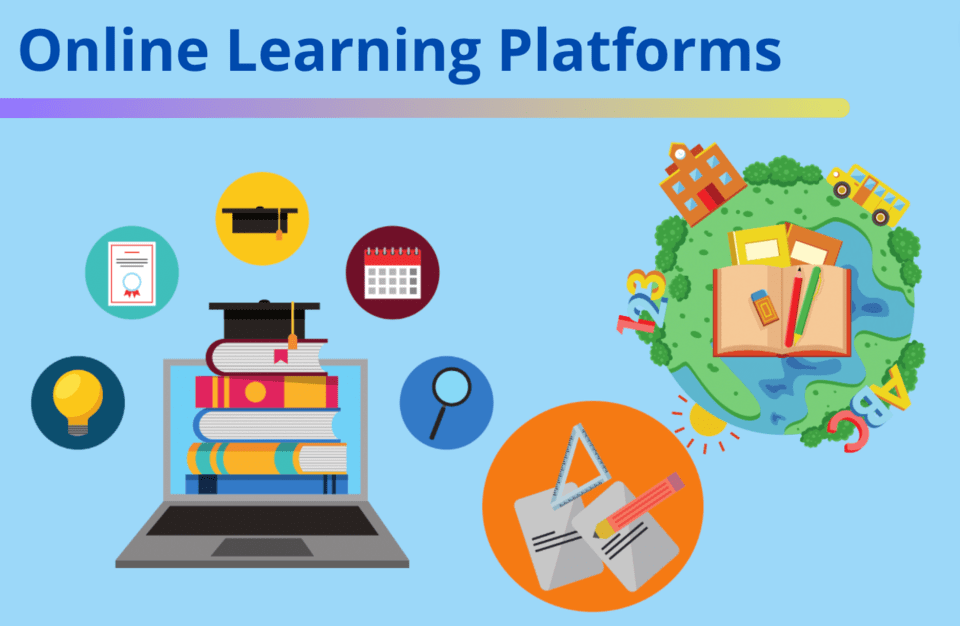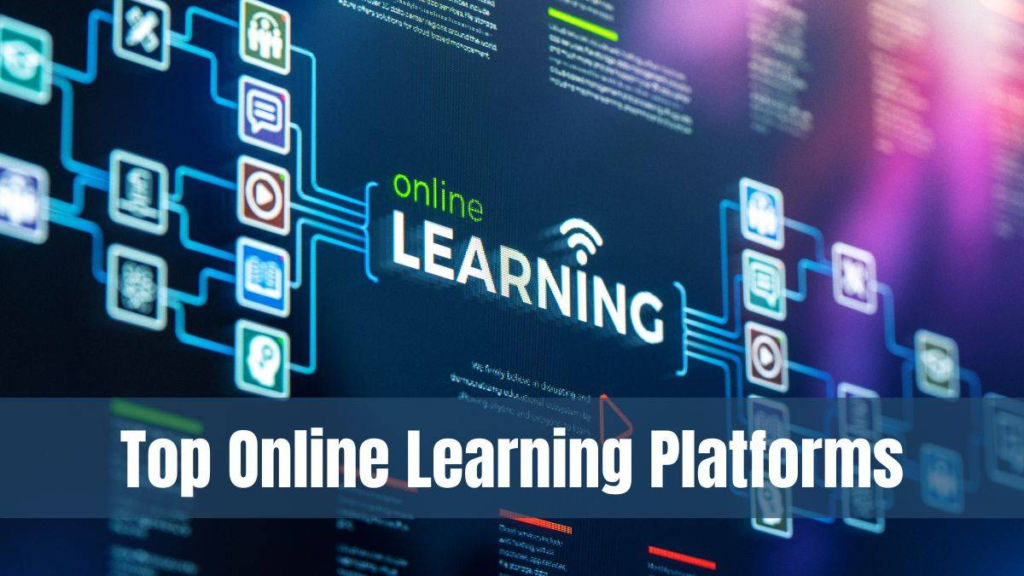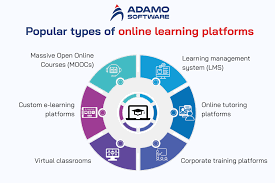The way U.S. students learn has changed dramatically in recent years. With the rise of digital education, online learning platforms have become a go-to solution for students seeking flexible, affordable, and high-quality education. Whether you’re a high school student preparing for college, a college student looking to boost your skills, or an adult learner aiming to advance your career, online learning platforms offer something for everyone. In 2025, these platforms are more advanced than ever, providing courses from top universities, interactive tools, and even career-focused certifications. This article explores the best online learning platforms for U.S. students this year, highlighting their features, benefits, and what makes them stand out.

Why Online Learning Matters for U.S. Students
Online learning has become a game-changer for students across the United States. According to recent data, over 88% of students taking online courses want to continue with fully online formats due to their flexibility and accessibility. The ability to learn at your own pace, from anywhere, makes these platforms ideal for busy students juggling school, work, or family responsibilities. Additionally, online platforms often cost less than traditional in-person classes, making education more affordable. With courses ranging from coding to creative writing, students can explore new subjects or gain job-ready skills without stepping into a classroom.

1 Top Online Learning Platforms for U.S. Students in 2025
Here are five of the best online learning platforms for U.S. students this year, each offering unique features to meet different learning needs.
1. Coursera: University-Level Education at Your Fingertips
Coursera is a top choice for students seeking high-quality, university-backed courses. Partnering with over 275 leading institutions like Stanford, Yale, and the University of Michigan, Coursera offers more than 7,000 courses in fields like computer science, business, and public health. Students can take individual courses, earn professional certificates, or even pursue full online degrees.
What makes Coursera stand out is its academic rigor and flexibility. Many courses are free to audit, meaning you can access content without paying, though certificates and graded assignments require payment. Financial aid is available for many courses, making it accessible for students on a budget. However, some courses follow set schedules, which may not suit those needing fully self-paced options. Coursera is ideal for college students or professionals looking for accredited education to boost their resumes.
2. Udemy: Affordable and Diverse Course Marketplace
Udemy is one of the largest online learning platforms, boasting over 213,000 courses and 62 million students worldwide. Its pay-per-course model, with prices ranging from $10 to $200, makes it an affordable option for students who want lifetime access to course materials. Udemy covers everything from programming and data science to photography and personal development, making it perfect for students exploring diverse interests.
The platform’s strength lies in its variety and accessibility. Courses are created by industry experts, and frequent discounts make learning budget-friendly. However, course quality can vary, so students should read reviews before enrolling. Udemy is best for self-motivated learners who want practical, hands-on skills without needing formal accreditation.
3. Khan Academy: Free Learning for All Ages
Khan Academy is a nonprofit platform offering free, world-class education for students of all ages. With over 120 million learners globally, it’s a favorite for K-12 students and those preparing for college entrance exams like the SAT, LSAT, or MCAT. The platform covers subjects like math, science, history, and computer programming through short video lessons, practice exercises, and progress-tracking tools.
Khan Academy’s biggest advantage is its cost—everything is free, thanks to support from major foundations. It’s especially helpful for younger students or those needing supplemental resources for schoolwork. However, it may lack the interactive features or advanced topics found on paid platforms. Khan Academy is perfect for budget-conscious students seeking structured, academic-focused content.
4. edX: High-Quality Courses from Top Universities
edX, founded by Harvard and MIT, is another excellent platform for students seeking university-level education. With over 260 partner institutions, edX offers 7,000 courses, including micro-masters and professional certificates in fields like artificial intelligence, business, and healthcare. Many courses are free to audit, with certificates available for a fee, typically $50 to $300.
edX stands out for its high-quality, academically rigorous content and strong industry partnerships. It’s a great choice for students aiming to earn credentials that impress employers. However, some programs can be costly, and interaction with instructors or peers may be limited. edX is ideal for motivated students who want prestigious, career-focused education.

5. MasterClass: Learn from the World’s Best
MasterClass takes a unique approach by offering courses taught by celebrities and industry leaders like Gordon Ramsay, Serena Williams, and Neil deGrasse Tyson. With over 200 classes in areas like cooking, writing, business, and music, MasterClass combines practical skills with inspiration. Each course includes short, high-production-value video lessons and workbooks.
The platform’s subscription model, starting at $180 per year, gives access to all courses, making it a good value for students who want to explore multiple topics. MasterClass is best for creative learners or those seeking personal growth rather than formal credentials. Its engaging format appeals to high school and college students looking to spark their curiosity.
What to Look for in an Online Learning Platform
Choosing the right platform depends on your goals, budget, and learning style. Here are key factors to consider:
- Course Variety: Look for platforms offering subjects that match your interests or career goals. Udemy excels in diversity, while Coursera and edX focus on academic and professional topics.
- Cost and Accessibility: Free platforms like Khan Academy are great for tight budgets, while Udemy and Coursera offer affordable paid options. Check for financial aid or free trials.
- Accreditation and Certificates: If you need credentials for your resume, choose platforms like Coursera or edX that offer university-backed certificates.
- Interactivity and Engagement: Platforms with quizzes, forums, or live sessions, like MasterClass or Coursera, keep you motivated.
- Flexibility: Self-paced courses suit busy schedules, but some platforms, like edX, may have fixed schedules for certain programs.
Trends Shaping Online Learning in 2025
Online learning continues to evolve, with several trends making it more engaging and effective for U.S. students. Gamification, such as digital badges and rewards, is boosting motivation on platforms like LearnDash and TalentCards. Mobile learning is also on the rise, with platforms like Udemy and Moodle offering apps for learning on the go. Additionally, social learning features, like discussion forums on FutureLearn, foster collaboration among students. Virtual reality and live webinars are emerging as tools to simulate classroom experiences, enhancing engagement for remote learners.
Tips for Success in Online Learning
To make the most of online platforms, follow these tips:
- Set Clear Goals: Decide whether you want to gain skills, earn a certificate, or explore a hobby.
- Read Reviews: Check course ratings and instructor backgrounds to ensure quality.
- Stay Organized: Use a calendar to track deadlines and study time, especially for self-paced courses.
- Engage with the Community: Join forums or discussion groups to connect with peers and stay motivated.
- Test Before You Invest: Take advantage of free trials or audit options to ensure the platform suits your needs.
Conclusion
Online learning platforms have transformed education, offering U.S. students unparalleled access to knowledge and skills. Whether you’re drawn to Coursera’s university courses, Udemy’s affordable variety, Khan Academy’s free resources, edX’s prestigious credentials, or MasterClass’s inspiring lessons, there’s a platform for every learner. By choosing the right platform and staying committed, you can unlock new opportunities for personal and professional growth in 2025. Start exploring these platforms today and take the first step toward achieving your educational goals.
Must Read :- Top 10 Best U.S. Colleges Changing Education in 2025






